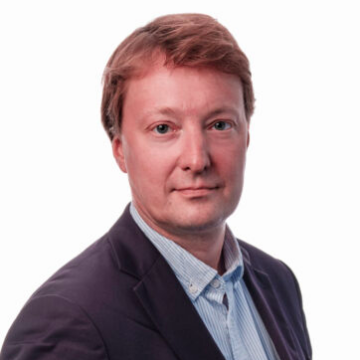What do societies expect, and what are they afraid of in the new era? And what obligations does this impose on the states? On October 20, 2020 the Valdai Discussion Club opened its 17th Annual Meeting with a session titled “Struggling With Pandemics: How the World Is Composing Itself.” Moderator: Fyodor Lukyanov, Editor-in-Chief of Russia in Global Affairs. To find out what the experts spoke about and what conclusions they came to, read the review by Timofei Bordachev, programme director of the Valdai Discussion Club.

The first session of the 2020 Annual Meeting of the Valdai Club, titled Struggling With Pandemics: How the World Is Composing Itself, was devoted to the discussion of fundamental issues affecting the development of modern society, states and international politics. The organisers of the session set the task of trying to see glimpses of the near future in the most complex issues of our time. The coronavirus pandemic has provoked vivid manifestations of those changes that have accumulated over the years and have been the subject of reflection and debate among forecasters. And now they have suddenly yielded the reality in which we all find ourselves.
The moderator of the session, Valdai Club research director Fyodor Lukyanov, drew the attention of the participants and the audience to the fact that the session was parting with usual practice at the Club by not being about big politics, but rather about what is happening to individuals and to society as a whole. The pandemic has forced the world to «self-quarantine”, because humanity has not invented any other way to deal with such challenges, throughout its entire history. Everything stopped, and people began to say that the world will no longer be the same as before. Gradually, we adapted to the new conditions, and it became clear that there would be no revolutionary changes – processes which had already been set in motion accelerated, but remained qualitatively the same. The political agenda has not changed much, at first it froze, but now it is returning to its normal place. Pretty soon there will be an opportunity to «open up» everything once again, but will there be the desire?


Earlier it seemed that there was no choice, but now it has become clear that the degree of return to a global environment can be regulated to reflect the desire of people, governments, and corporations.
The discussion was continued by Ivan Krastev, Chairman of the Centre for Liberal Strategies in Sofia. He emphasised that the world, of course, has changed, but it began to change even before the pandemic. The interconnectedness of the world and its dependence on technology had been discussed earlier, but it has ceased to be a theoretical discussion and is now a practical one. The most important change has been in our attitude towards freedom of movement, which is an integral feature of globalisation. The question is — how to restore it. Here the problem is not only one of government measures, but also the restrictions that we impose on ourselves. COVID-19 has closed more borders than the 2015 refugee crisis. In addition, our perception of territory has changed. When people are told, “Stay at home”, the question arises — where is home? You can own houses in different countries, but we only call one place home. The pandemic has forced people to make this choice. Another important aspect is that the nationalism caused by the migration crisis is strikingly different from nationalism which has emerged under the slogan “Stay at home”, as the first was about the issue of origin and the second is about residence.
The governments of European countries found themselves treating refugees living on their territory like they did their citizens, since the spread of the infection could not be allowed. At the same time, states were reluctant to take responsibility for citizens who found themselves abroad during the pandemic. The most interesting paradox of the coronavirus crisis is that people started to feel like they were living in a bigger world. Those who hadn’t previously been interested in global problems began to follow the statistics of morbidity and mortality in other countries, and what measures were being taken by the governments of other countries.
The states, almost without coordinating their actions, began to copy each other. During the pandemic, the whole world was synchronised at once, and following the same news. There was a feeling of unity and complete uncertainty. As a result, countries began to copy the health precautions of one another, since in the event that policies proved to be unsuccessful, governments could mitigate the stigma and responsibility of their mistakes. In addition, it turned out that everyone longed to return to a world that was regularly condemned as terrible and wrong before the pandemic. The dreams of «green» activists and nationalists, which had previously seemed unrealisable, suddenly came true: planes stopped polluting the air, communications stopped, and borders were closed.


Vadim Radaev, First Vice Rector at the National Research University Higher School of Economics, spoke about the impact of the pandemic on different generations. He stressed that what is happening must be seen against the backdrop of long-term and profound changes. If we’re talking about Russia, then these changes were determined by two social upheavals. The first was associated with radical political and economic reforms in the late 1980s and 1990s, which greatly altered the external conditions of human existence. The second turning point, less noticeable, took place in the calm 2000s: the millennials, who had witnessed the aforementioned upheavals as children, reached adulthood and were followed by yet another demographic cohort who hadn’t, so-called Generation Z.
The years when we come of age and become adults are the most important for each successive generation. Millennials, the oldest of whom had barely entered school by the time the Soviet Union collapsed, are the first generation that did not have the experience of life in the USSR, and they did not experience the crucial period of rapid reforms as adults. They are more open and globally oriented. They started out optimistically: they became aware of the world during a period of economic growth and stability, when real and disposable incomes grew by an average of 12%.
In the 2000s, a massive spread of new technology and user services appeared: in 2004 Facebook appeared, in 2005 YouTube arrived, and in 2006 Twitter and the Russian networks Vkontakte and Odnoklassniki were introduced. In 2007 — the first iPhone appeared on the Russian market and 2008 saw the Russification of Facebook. Whatsapp made its debut in 2009 and Instagram arrived in 2010. Every year there were events that changed life and communications. Millennials differ in behaviour and perception from previous generations: they have better-educated parents, they postpone making important decisions related to growing up, take more care of themselves, are less religious, and demand more personal sovereignty. The emergence of millennials in the labour market has caused a shock — they adapt quickly, want «recognition», seldom have long-term career plans, and strive for a better balance between work and personal life. And all this reflects global trends.
Then, in 2012–2014, the situation began to change: these years brought recession, crisis, declining real incomes, and trade barriers. The time for hope was over. And on top of that came the pandemic and the ensuing crisis. For the younger generation, this has been a traumatic experience. The realisation came that the world is not safe. The solution was to transition everything online, but convenience and flexibility have a downside: the growth of self-employment, the lack of formal benefits and guarantees. There will be no return to the previous system. So, first there was a political turning point, then a generational one, then a technological one, and now the shock of the pandemic has hit us.


Samir Saran, President of the Observer Research Foundation in New Delhi, discussed the importance of technology in the world. The pandemic provided the answer to the important question of belonging — when the crisis broke out, people returned home, to where they felt protected. You can be a citizen of the world and have any passport, but during a crisis, you return home.
Another important question is: who do we trust during a crisis, when “tonnes” of information and advice are poured down on us from all sides. For young people (in India), the main source of information is Facebook, but when asked which source they trust most, they replied: «The state». And this shows that although there are global information platforms, it is more important which is the most trusted one. While it was said that technology would change the world and relationships between people, the pandemic showed us that some of the traditional relationships can become stronger as a result of a crisis — in particular, between people and states. The nation state is returning, and it doesn’t matter what kind it is — democratic, authoritarian or communist — it gets stronger during a pandemic. And technology, which has gained importance throughout our lives, only strengthens the state.The next question: What do we get?


People form groups with different interests — politics, climate conservation, animal welfare and others. As a result, nation states begin to speak with many voices, and they will have to think about how to reconcile many different interests together.
The latter is a question of identity. Who are we? Does it depend on religion, income, passport colour, lifestyle? The pandemic forced us to choose a “main” identity, and the problem of tribalism arose, which is often disguised as nationalism. Everyone is using the pandemic to their advantage. This will cause turbulence in world politics.
There is the threat that the big actors who own technology and have access to big data will prevent other players from accessing this. In addition, technological infrastructure collapses will occur more frequently, but few states are able to withstand this challenge.
Tsogtbaatar Damdin, former Foreign Minister of Mongolia, and now a member of parliament and head of the Mongolian delegation to the OSCE Parliamentary Assembly, believes that the world becomes «angry». The coronavirus is one of the forms of nature’s anger which has resulted from unreasonable human actions. Global warming is accelerating and the risks of new diseases are increasing — nature is unhappy with what a man does. On the other hand, we see that the world community is dissatisfied with global processes. Over the past thirty years, globalisation began to intensify, and politicians around the world made exaggerated promises that led to exaggerated public expectations. They talked about big numbers — that the pie will grow and there will be enough for everyone.
As a result, globalisation has allowed the world to develop very quickly. However, the gap between rich and poor has begun to widen. They didn’t talk about it, but few became fabulously rich. Feelings of injustice are growing. This could be corrected if politicians admitted to it. But this is hardly possible.
The world became multidimensional, surreal, and this last component began to dominate. There is a lot of irrationality in life. Much becomes incomprehensible and unpredictable because we look at it rationally. The world has become virtual and many people live within their phones. They make billions without having to go back to the real world; they look at the phone more often than in the mirror. Consciousness begins to define reality.
The era of rationalism is behind us. All the prerequisites for the destruction of the world are already there, but there is no order to destroy it.












